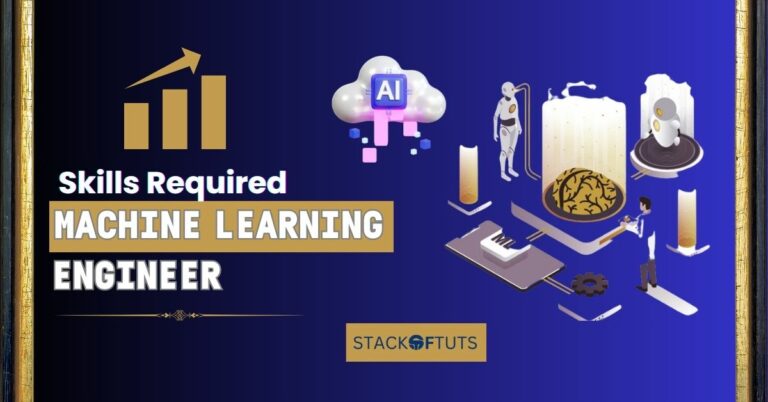
In the digital era, machine learning (ML) has taken center stage, captivating the tech domain. With algorithms that drive automation, forecast results, and aid in informed decision-making, ML is spearheading transformations across various industries. This dynamism has paved the way for numerous startups to capitalize on ML’s groundbreaking potential. Accordingly, the realm of machine learning startup jobs has expanded, offering a plethora of opportunities.
In this piece, we explore all AI jobs avenues, delving into their intricacies and their indispensable role in the modern startup landscape.
Understanding machine learning
At its core, machine learning is a subset of computer science. It empowers computers to assimilate knowledge from data. Rather than relying on explicit coding for every task, these systems harness the power of data, drawing insights and making determinations without a predetermined directive. In essence, it’s akin to equipping computers with the ability to learn and evolve through experience.
What types of machine learning jobs are there?
Machine learning jobs involve creating and using algorithms that allow computers to learn from and make decisions based on data. These jobs often require skills in data analysis, programming, and statistics. People in these roles design, implement, and apply machine learning models to solve problems or make predictions.
List of the most common machine learning startup jobs
- Data Scientist
- Machine Learning Engineer
- ML Operations (MLOps) Engineer
- Research Scientist
- Business Analyst
Data Scientist: The Brain Behind the Algorithms

At the heart of any machine learning startup job is the role of a data scientist. They are responsible for analyzing massive sets of data, understanding patterns, and devising algorithms that can make intelligent decisions based on that data. Data scientists require a strong foundation in mathematics, statistics, and programming.
Key Responsibilities:
- Data collection, preprocessing, and cleaning.
- Building predictive models.
- Visualizing data patterns and insights
2. Machine Learning Engineer: Turning Concepts into Reality

While a data scientist devises the algorithms, it’s the machine learning engineer’s job to implement them. They ensure that the models run efficiently, can scale with increased data, and are integrated seamlessly into the startup’s products or services.
Key Responsibilities:
- Designing and implementing ML applications
- Optimizing algorithms for performance.
- Collaborating with data scientists and understanding their requirements
3. ML Operations (MLOps) Engineer: Streamlining the ML Lifecycle

As ML models evolve, they need continuous monitoring, updating, and deployment. An MLOps engineer ensures that the entire machine learning model lifecycle runs smoothly, from data collection to serving predictions.
Key Responsibilities:
- Setting up ML infrastructure
- Continuous integration and deployment of ML models.
- Monitoring model performance and making necessary updates.
4. Research Scientist: Pushing the Boundaries of Machine Learning

In startups focusing on cutting-edge applications of ML, research scientists are invaluable. They stay abreast of the latest in ML research and look for novel ways to apply these findings in the startup’s domain.
Key Responsibilities:
- Keeping updated with the latest ML research
- Proposing new techniques and applications.
- Collaborating with academia and attending conferences
5. Business Analyst: Bridging the Gap

Machine learning startup jobs aren’t limited to technical roles. Business analysts play a crucial role in understanding market needs, translating them into technical requirements, and ensuring that ML solutions align with business objectives.
Key Responsibilities:
- Conducting market research.
- Collaborating with the technical team to design ML solutions
- Preparing business reports and insights.
How Do I Get a Machine Learning Startup Job?
1. Build your skills and experience
It’s crucial to establish a strong foundation before jumping into the realm of machine-learning startup jobs. Learn the fundamentals of machine learning first, such as how to handle data, comprehend algorithms, and program in a language like Python. This is possible by:
- Taking online courses from platforms like Coursera, Udemy, or Khan Academy
- Reading books or articles about machine learning.
- Joining workshops or attending seminars to get hands-on experience.
Remember, the more you practice and experiment, the better you’ll get.
2. Build a portfolio of your work
Just like an artist showcases their best artwork, you should have a collection of your machine learning projects. This will:
- Display your skills to potential employers.
- Give a practical example of your knowledge and experience.
- Allow yourself to reflect on past projects, learning from successes and mistakes.
Begin with small projects and gradually take on more complex challenges. Over time, this portfolio will be a testament to your growth and expertise in the field.
3. Network with people in the industry
Knowing the right people can often open doors to job opportunities. Here’s how you can start:
- Attend industry events, conferences, or meetups related to machine learning.
- Join online forums or communities where professionals discuss machine learning topics.
- Reach out to professionals on platforms like LinkedIn, and don’t be shy about asking for advice or insights.
Building genuine relationships and showing genuine interest in the field can lead to job referrals or even direct job offers from startups looking for talent.
FAQs
While many roles prefer a degree in computer science, data science, or a related field, startups often value practical experience and skills. Demonstrated expertise, such as a robust portfolio, can sometimes outweigh formal education.
While many machine learning roles require programming, especially in languages like Python or R, not all positions do. Roles like business analysts or project managers might focus more on the application and management sides of ML projects.
To remain at the forefront of machine learning trends, consider participating in online communities, joining relevant conferences, enrolling in up-to-date courses, and consistently reviewing academic journals and industry updates.
Both factors carry weight. Practical experience showcases an individual’s ability to address real-world challenges, whereas certifications attest to one’s formal training and proficiency in specific aspects of the field. Startups often seek a harmonious blend of the two.
Conclusion
Machine learning startup jobs epitomize the nexus of technological prowess, pioneering spirit, and entrepreneurial insight. With startups persistently exploring new horizons, the significance of these roles is set to amplify. Regardless of whether you’re a seasoned expert or an enthusiastic beginner, the realm of machine learning startup jobs beckons. Seize the opportunity, align with innovation, and craft the future!
Thanks!





